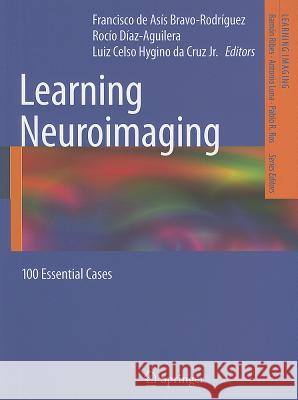Learning Neuroimaging: 100 Essential Cases » książka
Learning Neuroimaging: 100 Essential Cases
ISBN-13: 9783642229985 / Angielski / Miękka / 2011 / 226 str.
This book is intended as an introduction to neuroradiology and aims to provide the reader with a comprehensive overview of this highly specialized radiological subspecialty. One hundred illustrated cases from clinical practice are presented in a standard way. Each case is supported by representative images and is divided into three parts: a brief summary of the patient's medical history, a discussion of the disease, and a description of the most characteristic imaging features of the disorder. The focus is not only on common neuroradiological entities such as stroke and acute head trauma but also on less frequent disorders that the practitioner should recognize. Learning Neuroimaging: 100 Essential Cases is an ideal resource for neuroradiology and radiology residents, neurology residents, neurosurgery residents, nurses, radiology technicians, and medical students.
Neuroradiology is the branch of radiology that comprises both imaging and invasive procedures related to the brain, spine and spinal cord, head, neck, organs of special sense (eyes, ears, nose), cranial and spinal nerves, and cranial, cervical, and spinal vessels. Special training and skills are required to enable the neuroradiologist to function as an expert diagnostic and therapeutic consultant and practitioner. In addition to knowledge of imaging findings, the neuroradiologist is required to learn the fundamentals of structural and functional neuroanatomy, neuropathology, and neuropathophysiology as well as the clinical manifestations of diseases of the brain, spine and spinal cord, head, neck, and organs of special sense. §This book is intended as an introduction to neuroradiology and aims to provide the reader with a comprehensive overview of this highly specialized radiological subspecialty. One hundred illustrated cases from clinical practice are presented in a standard way. Each case is supported by representative images and is divided into three parts: a brief summary of the patient s medical history, a discussion of the disease, and a description of the most characteristic imaging features of the disorder. The focus is not only on common neuroradiological entities such as stroke and acute head trauma but also on less frequent disorders that the practitioner should recognize. Learning Neuroimaging: 100 Essential Cases is an ideal resource for neuroradiology and radiology residents, neurology residents, neurosurgery residents, nurses, radiology technicians, and medical students.











